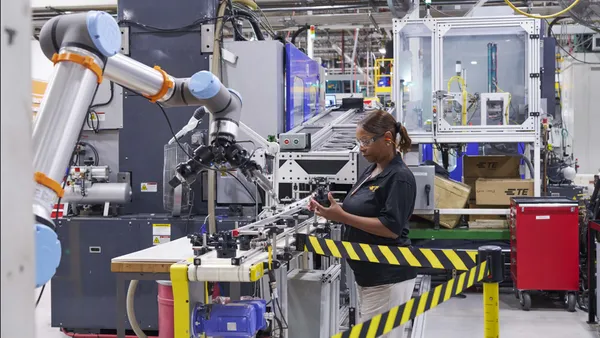Why the TPP talks are a big deal but also not a big deal
Trump briefly considered re-joining the Trans-Pacific Partnership last week, but after several tweets railing against the TPP , it looks like the U.S. won't be re-joining any time soon.
White House economic adviser Larry Kudlow told Bloomberg the odds of the U.S. re-joining are unlikely, and today TPP members said they were ready to proceed without Trump, according to the Nikkei Asian Review.
The Reaction: After a typical Trump whirlwind, it seems journalists, economists and some businesses got their hopes up only to have them dashed. While many economic analyses agree that the TPP is a boon to the U.S. economy, withdrawing will only be a tiny blip for the economy.
That said, Trump's incendiary comments and bombastic statements do nothing to soothe unstable markets, and as with the steel tariffs, the uncertainty is likely to be more damaging than the actual policy itself.
The tariffs are working?
It seems like steel tariffs are having their intended effect — steel prices are rising and boosting the steel industry (making U.S. steelmakers very happy), but manufacturers are understandably upset, as Shefali Kapadia reports for Supply Chain Dive.
According to the Fed, Chicago manufacturers may pass half the higher costs to consumers — but that's a big "maybe," and it's way too soon to tell what the exact impacts of the tariffs will be. Right now, manufacturers are scrambling to absorb the higher prices and spread them throughout their supply chains.
The Reaction: The tariffs are doing exactly what Trump wanted them to do — lift the steel industry's bottom line and revive the U.S. as a steelmaking powerhouse (at least in part).
If the higher price of U.S. steel doesn't outpace the cost of importing steel, then manufacturers will be more likely to support American business, which is a good thing for local economies, especially the small towns across the Midwest that have been left behind by globalization.
But what about farmers, you ask? Check out last week's Chain Reaction to get the details.
Blockchain use case
An Indiana farm recalled 200 million eggs last week over fear of a salmonella outbreak, prompting Publix to do the same.
Blockchain could have helped with that, according to SPR Director of Emerging Technologies Kevin MacMahon. Walmart recently completed a couple blockchain pilot projects, trying to see how long it would take to trace an outbreak using blockchain. Without blockchain, tracing an outbreak took more than 6 days.
With blockchain, it would take 2.2 seconds.
The Reaction: These kinds of use cases for blockchain could revolutionize supply chains, but only if companies can figure out how to cost-effectively implement them. Right now it is primarily limited to big companies with well-funded R&D departments conducting blockchain trials and research, but if specific use cases can be verified for blockchain use, adoption may accelerate.
In case you missed it
Amazon now has 100 million Prime subscribers, Retail Dive reported, as the company continues its worldwide domination of e-commerce.
The Department of Transportation announced $19.6 million in available funds to support U.S. shipyards, according to a press release emailed to Supply Chain Dive. Despite the slow movement on infrastructure funding, that's a win for U.S. shipping.
In other news, the Verge published an in-depth look at why Tesla and Waymo are way ahead of the competition when it comes to driverless cars (hint: it's because they've been working on it longer and have more data).
Looking ahead
The House will vote on the FAA reauthorization bill next week, Roll Call reported.
As Earth Day approaches, Lyft announced all its cars are now carbon neutral, per The Atlantic, intensifying competition among transportation companies to meet ambitious sustainability goals.














